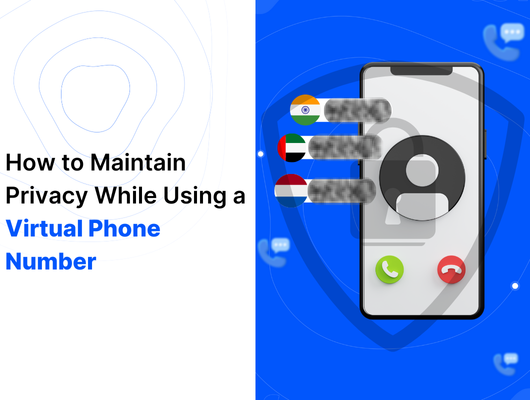
Introduction:
The way we conduct business has changed dramatically. Remote workforces are the norm, customer expectations are higher than ever, and technology is constantly evolving. A traditional landline phone system simply needs to catch up in this dynamic landscape.
Cloud telephone solutions, also known as Voice over Internet Protocol (VoIP), offer a future-proof alternative. By leveraging the power of the internet, cloud telephony provides a feature-rich and scalable communication platform that can empower your business in 2024 and beyond. Here’s why:
- Cost-Effectiveness: Cloud solutions eliminate the upfront costs of purchasing and maintaining bulky hardware. You only pay for what you use, with plans that scale to your business size. Plus, many providers offer bundled features like voicemail, call forwarding, and auto attendants, eliminating the need for separate services.
- Mobility and Flexibility: In today’s remote work environment, a physical phone line ties you down. Cloud telephony allows you to make and receive calls using any internet-connected device, from anywhere in the world. This flexibility is crucial for fostering collaboration and productivity among geographically dispersed teams.
- Scalability: As your business grows, your communication needs will too. Cloud-based systems are easily scalable. You can add or remove phone lines with just a few clicks, ensuring you always can handle your call volume.
- Advanced Features: Cloud phone systems go beyond basic calling functionalities. They offer features like voicemail transcription, call recording, video conferencing, and integrations with popular CRM and business tools. These features streamline workflows, improve customer service, and boost overall efficiency.
- Reliability and Security: Cloud providers invest heavily in data security and disaster recovery. Your communication system is no longer reliant on a single physical location. In an outage, cloud-based systems can automatically reroute calls, minimizing downtime and ensuring business continuity.
- Improved Customer Experience: Cloud telephony allows you to offer features like toll-free numbers, call routing, and interactive voice menus, creating a professional image for your business. You can also leverage features like call analytics to gain valuable insights into customer behavior and improve your communication strategy.
The Advantages of Cloud Telfon Solutions
In today’s fast-paced business world, staying connected and offering exceptional customer service are paramount. Traditional phone systems, while familiar, can be limiting. Cloud telephone solutions, also known as Voice over Internet Protocol (VoIP), offer a modern and feature-rich alternative. By harnessing the power of the internet, cloud telephony unlocks a multitude of advantages that can transform your business communications.
Cost Savings: Cloud solutions eliminate the hefty upfront costs associated with purchasing and maintaining on-premise phone systems. You only pay for the features you use, with flexible plans that adapt to your business size. Additionally, many providers bundle services like voicemail, call forwarding, and auto attendants, saving you money on additional subscriptions.
Enhanced Mobility and Flexibility: Gone are the days of being tethered to a desk phone. Cloud telephony grants you the freedom to make and receive calls from anywhere with an internet connection, using any device. This flexibility empowers remote teams, improves work-life balance, and allows you to stay connected with clients and colleagues regardless of location.
Effortless Scalability: As your business grows, your communication needs evolve. Cloud-based systems are highly scalable. Adding or removing phone lines is a breeze, ensuring you always can manage your call volume. This adaptability is crucial for businesses with fluctuating needs or experiencing rapid growth.
Advanced Features at Your Fingertips: Cloud phone systems go far beyond basic call functionalities. They boast a suite of advanced features designed to streamline communication and boost efficiency. These include voicemail transcription, call recording, video conferencing, and seamless integration with popular CRM and business tools.
Unmatched Reliability and Security: Cloud providers prioritize data security and invest heavily in disaster recovery plans. Your communication system is no longer vulnerable to localized outages or hardware malfunctions. Cloud-based systems can automatically reroute calls in the event of disruptions, minimizing downtime and ensuring business continuity.
Improved Customer Experience: Cloud telephony empowers you to present a professional image to your clients. Features like toll-free numbers, call routing, and interactive voice menus elevate your customer interactions. Additionally, call analytics provide valuable insights into customer behavior, allowing you to tailor your communication strategy for optimal results.
By embracing cloud telephone solutions, you gain a significant advantage in today’s competitive landscape. These solutions offer a cost-effective, scalable, and feature-rich platform that fosters mobility, enhances security, and empowers you to deliver exceptional customer service. Investing in cloud telephony is an investment in the future of your business communications.
Addressing Potential Concerns
Cloud telephone solutions offer a plethora of advantages for businesses, from cost savings and scalability to enhanced features and improved customer experience. However, some businesses might hesitate to transition from traditional phone systems due to perceived drawbacks. Let’s address some of these potential concerns and shed light on the realities of cloud telephony:
- Security Concerns: Data security is a top priority for any business. However, cloud providers generally invest heavily in robust security measures. They employ advanced encryption protocols and maintain redundant data centers to safeguard your information. Cloud-based systems can often be more secure than on-premise solutions, which may be vulnerable to local breaches.
- Reliability and Downtime: Businesses rely on their phone systems for uninterrupted communication. The fear of internet outages disrupting operations is a common concern. However, cloud providers offer Service Level Agreements (SLAs) that guarantee uptime percentages. Additionally, geographically distributed data centers ensure that even if one location experiences an outage, your calls can be automatically rerouted, minimizing downtime.
- Integration Issues: A smooth transition from your existing phone system is crucial. While some concerns exist about compatibility with legacy equipment, most cloud providers offer seamless integration solutions. They can help migrate your existing phone numbers and integrate with your current business tools and CRM systems, minimizing disruption to your workflows.
- Lack of Control: Shifting control of your phone system to a third-party provider might seem daunting. However, cloud providers offer user-friendly online portals that grant you complete control over your system. You can easily manage features, add or remove users, and monitor call activity, all from a centralized platform.
- Hidden Costs: While cloud solutions are generally cost-effective, some businesses worry about hidden fees. To avoid surprises, choose a reputable provider with transparent pricing structures. Carefully evaluate your needs and ensure the chosen plan includes all the features you require. Look for providers that offer all-inclusive packages with predictable monthly costs.
By understanding these concerns and their solutions, you can make an informed decision about transitioning to a cloud telephone solution. Cloud providers are dedicated to addressing these concerns and ensuring a smooth and successful migration process. With the right approach, you can leverage the many advantages of cloud telephony and unlock a new era of efficient and reliable communication for your business.
Case Studies and Examples
Cloud telephone solutions are revolutionizing business communications across various industries. Here, we explore real-world examples and case studies that showcase the transformative power of cloud telephony:
- Boosting Remote Team Collaboration: A growing marketing agency with a geographically dispersed workforce struggled with communication inefficiencies. Implementing a cloud phone system equipped with video conferencing and instant messaging features transformed their operations. Employees could now collaborate seamlessly on projects, regardless of location, fostering improved productivity and a stronger team spirit.
- Enhancing Customer Service for a Retail Chain: A national retail chain faced challenges managing call volume during peak seasons. Their traditional phone system lacked the scalability to handle the influx of calls, leading to frustrated customers and lost sales opportunities. By migrating to a cloud-based solution with call routing and interactive voice menus (IVR), they streamlined their call center operations. Customers were directed to the appropriate representatives efficiently, reducing wait times and improving overall satisfaction.
- Improving Operations for a Healthcare Provider: A busy medical practice relies on a basic phone system, making it difficult for patients to schedule appointments and reach the right healthcare professional. A cloud-based phone system with integrated voicemail transcription allowed them to prioritize urgent calls and quickly return messages. This improved communication flow enhanced patient care and streamlined administrative tasks.
- Scaling Up for a Startup: A promising tech startup needed a communication solution that could adapt to its rapid growth. A cloud telephone system offered the perfect solution. The pay-as-you-go model aligned perfectly with their budget, and the system’s scalability allowed them to easily add new phone lines as their team expanded. This flexibility empowered them to focus on innovation without worrying about communication infrastructure limitations.
- Global Expansion Made Easy: An established manufacturing company with international offices sought to improve communication between their geographically dispersed locations. A cloud-based solution with features like international calling and toll-free numbers facilitated seamless communication across borders. This enhanced collaboration between teams and streamlined global operations.
These are just a few examples of how cloud telephone solutions are empowering businesses of all sizes and across various industries. By harnessing the power of the cloud, businesses can enjoy improved communication, increased flexibility, and a competitive edge in today’s dynamic market.
Conclusion
The business landscape of 2024 demands a communication solution that is agile, scalable, and feature-rich. Traditional phone systems simply can’t keep pace. Cloud telephone solutions offer a compelling alternative, with advantages like cost savings, enhanced mobility, and unmatched reliability. By embracing cloud telephony, your business gains the tools to thrive in today’s dynamic environment and deliver exceptional service to your customers. Investing in a cloud solution is an investment in the future of your business communications.
FAQ:
- What is a cloud telephone solution?
A cloud telephone solution, also known as VoIP (Voice over Internet Protocol), utilizes the internet to make and receive phone calls. Unlike traditional phone systems, it eliminates the need for bulky on-site equipment.
- Is cloud telephony secure?
Cloud providers prioritize data security with robust encryption protocols and geographically distributed data centers. In fact, cloud systems can be more secure than on-premise solutions vulnerable to local breaches.
- Won’t my internet connection be unreliable for calls?
Cloud providers offer Service Level Agreements (SLAs) guaranteeing high uptime percentages. Additionally, geographically distributed data centers ensure call rerouting during outages, minimizing downtime.
- Can I integrate a cloud phone system with my existing tools?
Most cloud providers offer seamless integration solutions. They can migrate your phone numbers and integrate with your CRM and business tools, minimizing disruption.
- Is cloud telephony expensive?
Cloud solutions are generally cost-effective. You only pay for the features you use, with flexible plans that adapt to your business size. Many providers offer bundled services, eliminating the need for separate subscriptions.
- What features come with cloud telephony?
Cloud phone systems go beyond basic calls. Features include voicemail transcription, call recording, video conferencing, and integrations with popular business tools, boosting efficiency.
- Can I use my existing phone with a cloud solution?
Some cloud providers offer adapters for existing phones. However, many plans include cloud-based softphones or mobile apps, allowing calls from any internet-connected device.
- Is cloud telephony a good fit for small businesses?
Absolutely! Cloud solutions are scalable and cost-effective, making them ideal for small businesses. They offer features and flexibility that traditional systems lack.
- What happens if I want to cancel my cloud phone service?
Cloud services typically have no long-term contracts. You can easily cancel your service with minimal hassle.
- How can I learn more about cloud telephone solutions?
Many cloud providers offer free trials or consultations. Researching online resources and contacting providers can help you find the perfect solution for your business needs.Telfon












